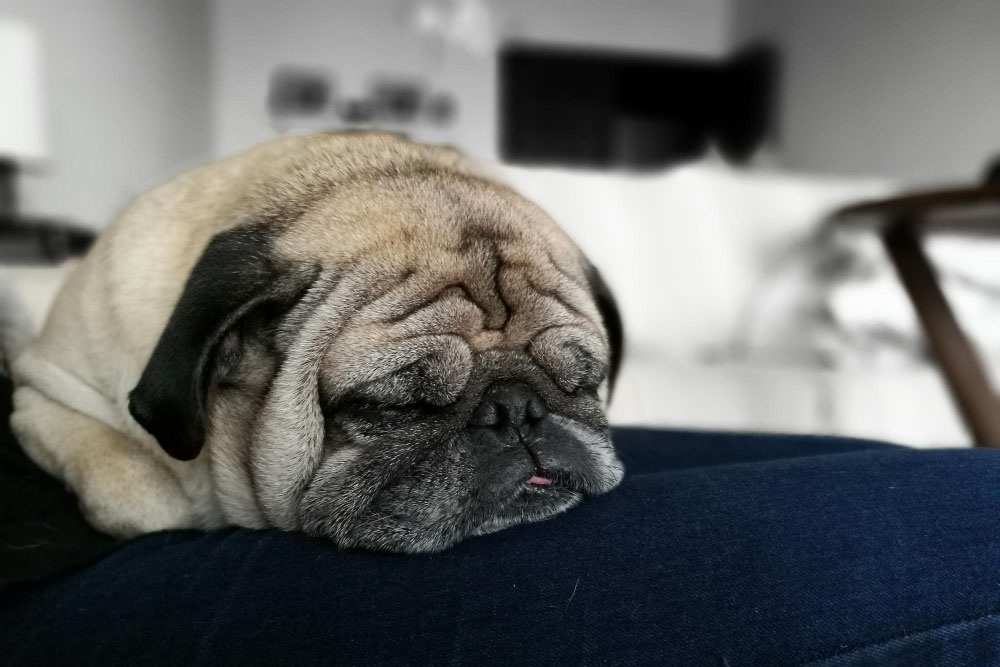Depression in Senior Dogs and What You Can Do About It

Depression in Senior Dogs and What You Can Do About It

As our beloved dogs age, they often face numerous physical and emotional challenges. One such challenge that can significantly impact an older dog's quality of life is depression. Just like humans, dogs can experience emotional distress, and it's essential for pet owners to recognize the signs and take proactive steps to help their furry friends. In this blog post, we'll explore the causes of depression in senior dogs, how to identify the symptoms, and what you can do to support your aging companion. Additionally, if you're considering in-home euthanasia in Reno, NV, we'll provide information on how Rover Veterinary can assist you during this difficult time.
Understanding Depression in Senior Dogs
Causes of Depression in Senior Dogs
Depression in senior dogs can be triggered by various factors, including:
- Health Issues: Chronic pain, arthritis, or other long-term health problems can lead to depression.
- Loss of a Companion: The passing of a fellow pet or a family member can cause significant emotional distress.
- Changes in Routine: Moving to a new home, changes in family dynamics, or alterations in daily routines can affect a dog's mental health.
- Sensory Decline: Hearing and vision loss can lead to confusion and anxiety, contributing to depression.
- Lack of Physical Activity: Reduced mobility due to age-related issues can result in decreased exercise and stimulation.
Symptoms of Depression in Senior Dogs
Recognizing the signs of depression in your senior dog is crucial for early intervention. Common symptoms include:
- Lethargy: Your dog may seem unusually tired or uninterested in activities they once enjoyed.
- Changes in Appetite: A depressed dog may eat less or more than usual.
- Isolation: Your dog may withdraw from family members and prefer to be alone.
- Changes in Sleep Patterns: Insomnia or excessive sleeping can indicate emotional distress.
- Behavioral Changes: Increased irritability, aggression, or clinginess can be signs of depression.
- Reduced Interest in Play: Your dog may show little interest in toys or social interactions with other pets.
What You Can Do to Help Your Depressed Senior Dog
Maintain a Consistent Routine
Dogs thrive on routine, and maintaining a consistent schedule can provide them with a sense of stability. Try to keep feeding times, walks, and play sessions at the same time each day.
Ensure Regular Exercise
While your senior dog may not be as active as they once were, regular exercise is still essential. Gentle walks, swimming, or low-impact games can help keep them physically and mentally stimulated.
Provide Mental Stimulation
Mental stimulation is just as important as physical exercise. Puzzle toys, training sessions, and interactive games can keep your dog's mind engaged and help alleviate boredom.
Monitor Their Health
Regular veterinary check-ups are crucial for identifying and addressing any underlying health issues that may be contributing to your dog's depression. Pain management, medications, or dietary changes may be necessary to improve their overall well-being.
Offer Comfort and Support
Spend quality time with your senior dog, offering comfort and affection. Gentle petting, cuddling, and speaking in a soothing tone can provide reassurance and help reduce anxiety.
Create a Comfortable Environment
Ensure your dog's living environment is comfortable and conducive to relaxation. Provide a cozy bed, easy access to food and water, and a quiet space where they can retreat if they feel overwhelmed.
Consider Professional Help
If your dog's depression persists despite your efforts, consider consulting a professional animal behaviorist or a veterinarian specializing in pet mental health. They can provide additional guidance and recommend appropriate treatments or therapies.
When to Consider In-Home Euthanasia
Understanding In-Home Euthanasia
In some cases, despite the best efforts and medical interventions, a senior dog's quality of life may deteriorate to the point where euthanasia is the most humane option. In-home euthanasia allows your dog to pass peacefully in the comfort of their own home, surrounded by loved ones.
Benefits of In-Home Euthanasia
- Comfort and Familiarity: Your dog can remain in a familiar environment, reducing stress and anxiety.
- Privacy and Dignity: The process is conducted in a private setting, allowing for a more intimate and dignified experience.
- Personalized Experience: You have the opportunity to create a peaceful and meaningful farewell for your beloved companion.
How Rover Veterinary Can Help
If you're considering in-home euthanasia in Reno, NV, Rover Veterinary offers compassionate and professional services to help you through this difficult decision. Our team understands the deep bond between pets and their owners and is committed to providing the highest level of care and support.
Steps to Take
- Consultation: Contact Rover Veterinary to discuss your dog's condition and determine if in-home euthanasia is the appropriate choice.
- Scheduling: Arrange a convenient time for the procedure, ensuring you have ample opportunity to say your goodbyes.
- Preparation: Create a calm and comfortable space for your dog, and gather family members who wish to be present.
- Support: Lean on the support of friends, family, and Rover Veterinary's compassionate team during this emotional time.
Conclusion
Depression in senior dogs is a serious issue that requires attention and care from pet owners. By understanding the causes, recognizing the symptoms, and taking proactive steps to support your aging companion, you can help improve their quality of life. However, if your dog's condition continues to decline, considering in-home euthanasia may be the most compassionate choice.
At Rover Veterinary, we are dedicated to providing the highest level of care and support for both you and your beloved pet. If you're considering in-home euthanasia in Reno, NV, don't hesitate to contact us today for more information and assistance.
